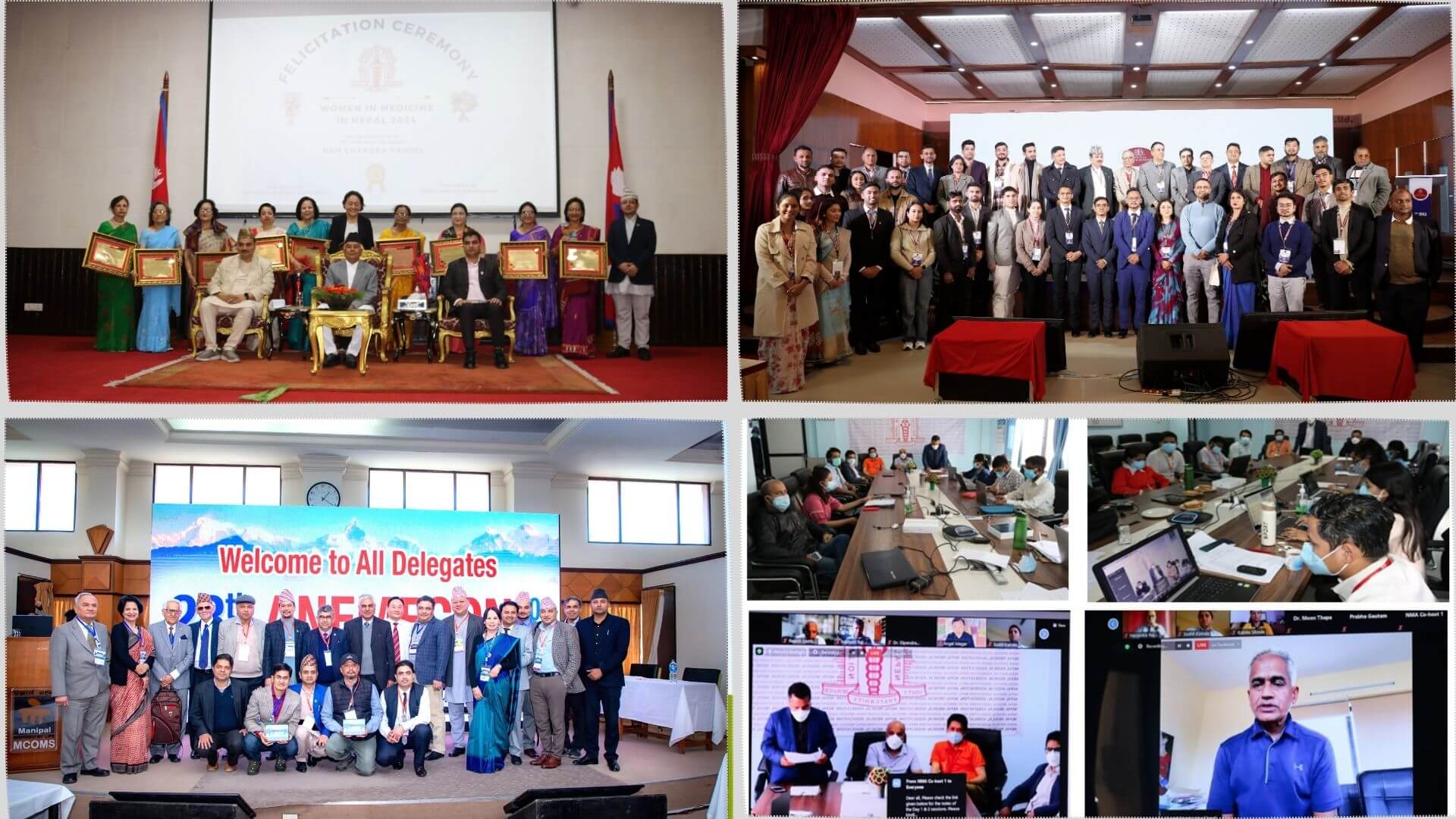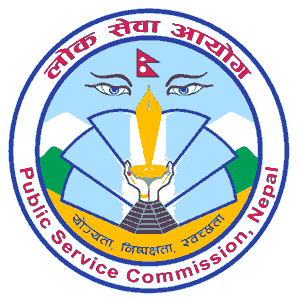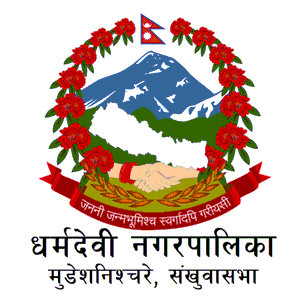Overview
Nepal Medical Association (NMA) is the national professional body of medical and dental doctors in Nepal. Established on 20 Falgun 2007 BS (4 March 1951), it began with 20 members and now represents a large and diverse community of practitioners across the country.
Its central office is at Siddhi Sadan, Exhibition Road, Kathmandu, with a network of branches that serve doctors, students, and communities at provincial and district levels.
History and Governance
NMA is Nepal’s first national professional organization of doctors. Over seven decades, it has served as a channel between the medical profession and the state, supporting policy dialogue, ethics, education, and professional welfare.
The current executive cycle (2023–2026) lists Dr. Anil Bikram Karki as President, alongside a team of vice presidents and coordinators across provinces.
NMA’s role extends beyond member services. It engages health authorities and public institutions on safety of healthcare workers, service continuity, and legislative issues.
Membership and Branch Network
NMA operates branches across provinces to handle local issues and member services. Branches act as local touchpoints for advocacy, education events, and coordination with stakeholders. This decentralized structure helps respond to regional priorities while keeping national standards aligned.
Branch activities typically include scientific talks, continuing education programs, meetings with hospital administrations, and liaison with provincial health directorates.
Mission, Goals, and Objectives
NMA’s mission focuses on professional rights, ethical practice, continuing education, and public health awareness. Its published goals and objectives include:
-
Upholding professional standards, values, and professional freedom.
-
Conducting academic activities that raise knowledge and skills of doctors.
-
Promoting public awareness on health, hygiene, and disease prevention.
-
Strengthening links among doctors and improving doctor–public trust.
-
Supporting research, journals, libraries, seminars, and conferences.
-
Advancing high standards in education and training for medical and allied personnel.
-
Offering cooperation to government, including action against quackery.
-
Sharing current clinical knowledge and emerging concepts among professionals.
-
Creating public awareness about health-related issues.
These aims guide programs in continuing professional development (CPD), publications, policy inputs, and community engagement.
Core Programs and Activities
Professional Advocacy and Safety
NMA intervenes on workplace safety, legal protection, and due process when incidents affect health workers. It works with authorities and hospitals to promote safe clinical environments and fair procedures.
Education, Training, and Conferences
The association organizes scientific meetings and skills updates. Its calendar includes national health summits, women-in-medicine forums, clinical skills training, and the All Nepal Medical Conference series hosted in different cities and years.
Journal of Nepal Medical Association (JNMA)
NMA publishes JNMA, Nepal’s oldest medical journal (since 1963). JNMA is indexed in PubMed/Medline and is circulated monthly. The journal has supported generations of authors with editorial guidance, reviewer development, and research-writing workshops.
Beyond publishing, JNMA and partner networks run capacity-building sessions on study design, writing, and peer review to strengthen research quality in Nepal.
National and International Linkages
NMA maintains links with national regulators, universities, and health institutions, and it is active internationally:
-
World Medical Association (WMA) membership supports global ethics dialogue and advocacy.
-
Confederation of Medical Associations in Asia and Oceania (CMAAO) membership strengthens regional collaboration.
-
Mutual affiliation with neighboring medical associations encourages bilateral learning on policy and education.
These connections create channels for policy exchange, disaster-response cooperation, and ethical guidance across borders.
Services and Value for Stakeholders
For doctors, NMA offers advocacy on employment and safety, access to CPD events, research exposure through JNMA, and peer networks through societies and committees.
For students, parents, and educators, NMA’s publications and public statements clarify standards, ethics, and current health priorities. JNMA’s open access facilitates learning and research, while branch events often include lectures and updates that support early-career development.
Sub-Committees and Focus Areas
NMA operates a structured sub-committee system that addresses member needs and public priorities:
-
Junior Doctor Committee
-
Doctor’s Welfare Committee
-
Scholarship Committee
-
Membership Management Committee
-
Non-Governmental Doctor Welfare Committee
-
NGO Federation Committee
-
Government Doctor Welfare Committee
-
Ethical Committee
-
Disaster Management Committee
-
Oral Health Committee
-
Human Rights Committee
-
International Relationship Committee
These groups manage youth engagement, member support, ethics, disaster readiness, oral health, human rights, and international liaison.
Junior Doctor Committee (JDC)
The JDC represents early-career doctors nationwide and coordinates with branch-level BJDCs. Membership is open to NMA members within ten years of graduation. The committee meets regularly to discuss training, contracts, and policy concerns—useful for MBBS interns, residents, and young specialists seeking a forum to raise issues.
Umbrella Societies Housed at NMA
A notable feature of NMA’s ecosystem is the number of specialty societies that operate from NMA’s Siddhi Sadan building in Kathmandu. Societies include:
-
Association of Spine Surgeons of Nepal (ASSN)
-
Society of Public Health Physician Nepal (SOPHYN)
-
Cardiac Society of Nepal (CSN)
-
General Practice Association of Nepal (GPAN)
-
International College of Surgeons – Nepal Section (ICS)
-
Nepal Association of Medical Editors (NAME)
-
Nepal Association of TB and Chest Physicians (NATBCP)
-
Nepal Association of Urological Surgeons (NAUS)
-
Nepal Epilepsy Association (NEA)
-
Nepal Oncological Society (NEONS)
-
Nepal Ophthalmic Society (NOS)
-
Nepal Orthopaedic Association (NOA)
-
Nepal Paediatric Society (NEPAS)
-
Nepal Radiologists Association (NRA)
-
Nepal Society of Nephrology (NSN)
-
Nepal Society of Obstetricians and Gynaecologists (NESOG)
-
Nepalese Society of Critical Care Medicine (NSCCM)
-
Nepalese Society of Gastroenterologists
-
Nepalese Society of Neurosurgeons (NESON)
-
Nepalese Society of Therapeutic Radiation Oncology (NESTRO)
-
Thoracic Society of Nepal
-
Perinatal Society of Nepal (PESON)
-
Psychiatrists Association of Nepal (PAN)
-
Society of Anaesthesiologists of Nepal (SAN)
-
Society of Dermatologists, Venereologists and Leprologists of Nepal (SODVELON)
-
Society of Internal Medicine of Nepal (SIMON)
-
Society of Otolaryngologists of Nepal (SOL Nepal)
-
Society of Surgeons of Nepal (SSN)
-
AMDA Nepal
-
Nepalese Society of Emergency Physicians (NSEP)
-
Ortho Dentist Association Nepal (ODAN)
-
Infection Control Society Nepal
-
Nursing Association Nepal
-
Association of Clinical Pathologists of Nepal (ACPN)
-
Nepal Dental Association (NDA)
-
Nepalese Respiratory Society
These umbrella societies benefit from proximity to NMA’s central services, enabling joint events, policy statements, and shared educational programs.
Publications and Research Support
Beyond the JNMA journal, NMA hosts scientific sessions and training activities to improve clinical knowledge and research practice. Historical development of JNMA includes expanded indexing and editorial training that has strengthened author support, reviewer capacity, and journal visibility.
For students and researchers, JNMA’s open access and PubMed presence help with literature review, citation, and understanding Nepal-based clinical findings.
International Events and Hosting Role
NMA hosts regional and international gatherings that bring physician leaders, policymakers, and academics to Nepal. Recent and upcoming meetings reflect shared interests in universal health coverage, primary care models, ethics, and crisis response.
Such events help local clinicians exchange ideas with regional partners and align Nepal’s practice standards with global discussions.
How NMA Serves Students, Parents, and the Public
-
Ethics and Standards: NMA communicates professional standards and patient-first duties, helping students and families understand expectations in clinical care.
-
Learning Pathways: Through JNMA and training programs, NMA offers content that supports study skills, research literacy, and evidence appraisal.
-
Public Health Messaging: NMA raises awareness on hygiene, disease prevention, and responsible health-seeking behavior, which benefits communities and schools.
Quick Facts
-
Founded: 4 March 1951 (20 Falgun 2007 BS).
-
Head Office: Siddhi Sadan, Exhibition Road, Kathmandu.
-
Branches: A nationwide branch network serving provincial and district needs.
-
Journal: JNMA (since 1963), PubMed-indexed, monthly.
-
Global Links: Member of WMA and CMAAO; active in regional and global forums.
-
Current Leadership (2023–2026): President Dr. Anil Bikram Karki with an executive team and provincial coordinators.
Contact and Access
For membership, activities, or society contacts, NMA provides public pages covering branches, committees, and umbrella societies. The site includes phone and email details for Siddhi Sadan and selected branches.





